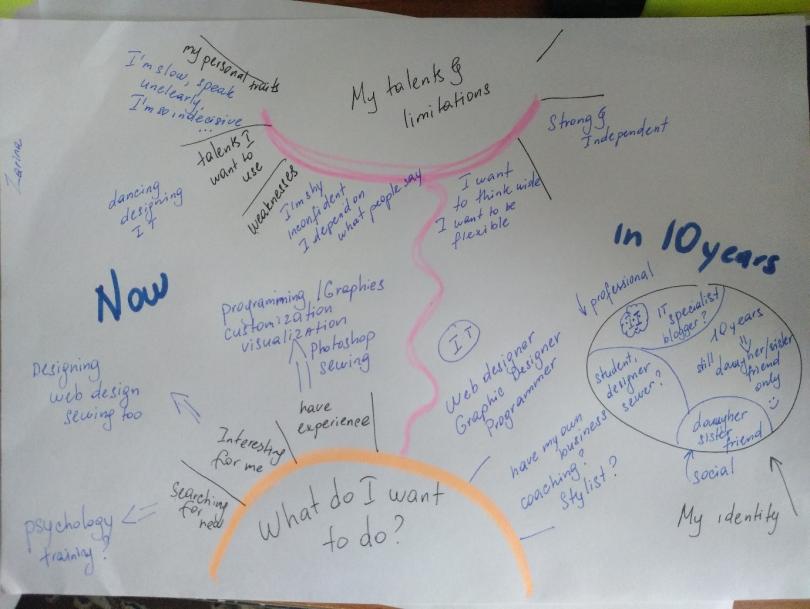
Teaching ESP, Kazakhstan: Finalist of Innovative Teaching and Learning Award 2022
English through project-based learning
What on the surface appears to be a hands-on ESP and project management course to help pre-service teachers get into the classroom, actually has a unique approach that tackles issues in both education and society.
What is striking about Yuliya’s approach to the project, is that whilst trainees learn how develop, manage and launch an educational project, in English, she is also doing the important and less quantifiable work of connecting adult trainees with young people who share similar disadvantaged or ‘vulnerable’ backgrounds.
Yuliya, an Engineering graduate, with an MA in Translation Studies and another in TESOL, is really passing on the baton, working with her trainee teachers who in turn work with school students to produce educational products. Along with 15 other cities across Kazakhstan, and with the sponsorship of the US Embassy, the project challenges ‘traditional’ teaching practice by getting pre-service teachers working collaboratively to produce products that can be sold for a shared E-currency. The outcomes and online educational products will be showcased a year from now at a fair where everyone can spend their E-currency (opencoins.kz)and “invest in what they want to learn.”
Creative Collaboration
Yuliya shares some of the innovative ideas the project groups have come up with, from speed reading for exam preparation, a ‘big book of activities’ that primary teachers countrywide can access for their pupils, or a ‘big shopper’ bag with environmental slogans on it. In this project, she explains that “the teenagers are concerned about … environmental awareness in such an industrialized city as ours, and how to teach people to be environmentally friendly.” Another project is ‘The Art of Survival’, which “help[s] teenagers to find quick and solid solutions to some daily challenges in life with ready-made solutions.” Yuliya gives an example: “some things that might be so simple to you…like how to get dressed for a proper occasion? Seems easy. But for those people, not having a mother, it’s not so [easy].” They are making humorous videos about things like inviting friends over, cleaning the house and daily routines.
Yuliya is the type of teacher who, when asked about successes, bubbles over with energy and excitement at the achievements of her trainees, and in turn, her secondary school students.
“They are so responsive; they are so responsible. They are just trying to take the extra mile…maybe because they are coming from vulnerable families.”
She loves working with these students as they have purpose and are highly motivated.
When asked about any challenges, however, she is thoughtful. She asked the embassy to consider an inclusion trainee as he is “having a hard time expressing himself.” She will be working with him on the soft skills he will need to become a teacher. She is rising to the challenge.
New ways of teaching and collaborating
Yuliya has noticed the impact the project has had on her students. Traditional language learning in Kazakhstan, she says, tends to involve punishment for mistakes. When she first met her trainees, they were quite shy. “Within a couple of months, I can see that my students are more fluent now. They don’t really care if they make mistakes. They just say it.” She also explains that students are not generally used to working in a group. But “now they collaborate more. They say things like ‘What if we do this?’” The teaching style and language focus of project management vocabulary is helping the process along.
Despite the US Embassy funding this project for many years, Yuliya says this is the first time that teachers have worked collaboratively across the country. In the past, teachers would work within their own cities, but this time, they wanted to see how they could learn from each other. For example, teachers are working together on a research project: ‘Universal Design for Learning in Kazakhstan.’ “We are finally meeting people who are on the same page.”
Opportunities Maps
When teachers and young people join the project, they map their own life and skills on an ‘opportunities map’ – a live document for recording qualifications, work experience, soft skills, volunteering etc. A “positioning of who you are at the moment, social networks…personal objectives…self-education.”
For example, some of Yuliya’s trainees volunteer to teach elementary English to young children, and these kinds of experiences can be recorded on their map and brought into their professional practice when they qualify. Yuliya explains that educational practice is so traditional that children of 6 or 7 years old may not get the opportunity to do things scavenger hunts. At its core, for participants, this work is truly innovative.
Yuliya is surprised her inclusive, person-centred approach to the project has attracted attention. She assumes that this kind of work is “not even innovation” – a born educator! She says,
“In the long run, I cherish the dream of opening my own educational platform or educational technology center. I want to contribute to the development of national educational reforms by offering programs such as train-the-trainer, teacher training for rural schools, web design programs for education technology purposes.”
Did you like this article? If you would like to be notified when new content like this is published, subscribe to receive our email alerts.